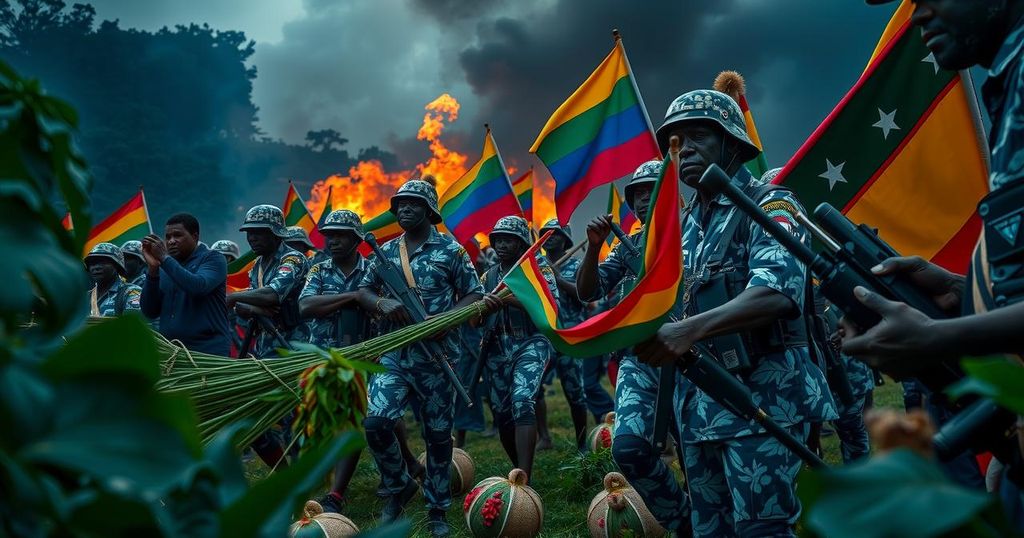The Democratic Republic of Congo faces severe humanitarian crises while President Tshisekedi seeks constitutional reform, raising suspicions of a power grab. His intent to alter presidential term limits mirrors the controversial tactics of previous leaders, risking further instability as foreign investors overlook domestic discontent.
The Democratic Republic of Congo (DRC) remains beset by severe challenges, despite being resource-rich. Extensive insecurity in the eastern regions, characterized by numerous armed factions, and a staggering displacement of millions, exacerbate the plight of over twenty-three million individuals facing food insecurity. Furthermore, the country grapples with the deadly Mpox outbreak. President Felix Tshisekedi, who has struggled to address these critical issues since his contentious rise to power in 2018, is now seeking to amend the constitution, alleging it is outdated. In his re-election campaign, which many consider flawed, Tshisekedi announced intentions to establish a national commission for constitutional reform, targeting the constitution that the populace ratified in 2005. However, suspicions abound among the Congolese that this initiative aims primarily at altering presidential term limits, potentially allowing Tshisekedi to extend his rule. This maneuver echoes the controversial actions of his predecessor, Joseph Kabila, who unsuccessfully attempted to manipulate term limits, resulting in diminished political support. The overarching sentiment among citizens is that this constitutional reform serves primarily to distract from the pressing issues facing the nation. Moreover, with global powers eager to access the DRC’s rich mineral resources, Tshisekedi may perceive a lack of international pressure to abandon his political aspirations. This dynamic risks overshadowing the populace’s challenges, as foreign investors may overlook the growing discontent among the Congolese, thereby perpetuating a cycle of instability and external exploitation.
The Democratic Republic of Congo is one of the world’s richest nations in terms of minerals, yet it ranks as one of the poorest globally, revealing a stark disparity between wealth generation and citizen wellbeing. The ongoing conflict in the eastern DRC has created an environment of profound insecurity, contributing significantly to the humanitarian crisis. President Felix Tshisekedi’s administration has faced criticism for inadequate responses to these crises and is now perceived as seeking a route to extend his presidency under the guise of constitutional reform, reminiscent of past political manipulations by former leaders.
In summary, the situation in the Democratic Republic of Congo is exacerbated by ongoing humanitarian and political crises. The proposed constitutional reforms by President Tshisekedi, widely viewed as a potential approach to extend his presidency, have raised concerns and distrust among the populace. Additionally, the dynamics of international investment in the DRC’s extensive mineral wealth may further complicate the internal political landscape, risking the continued marginalization of the Congolese people and their challenges.
Original Source: www.cfr.org






